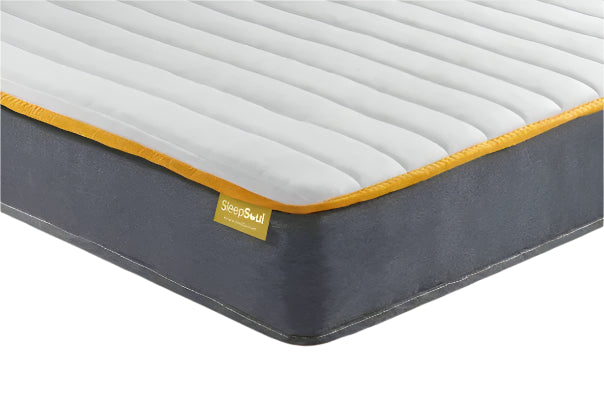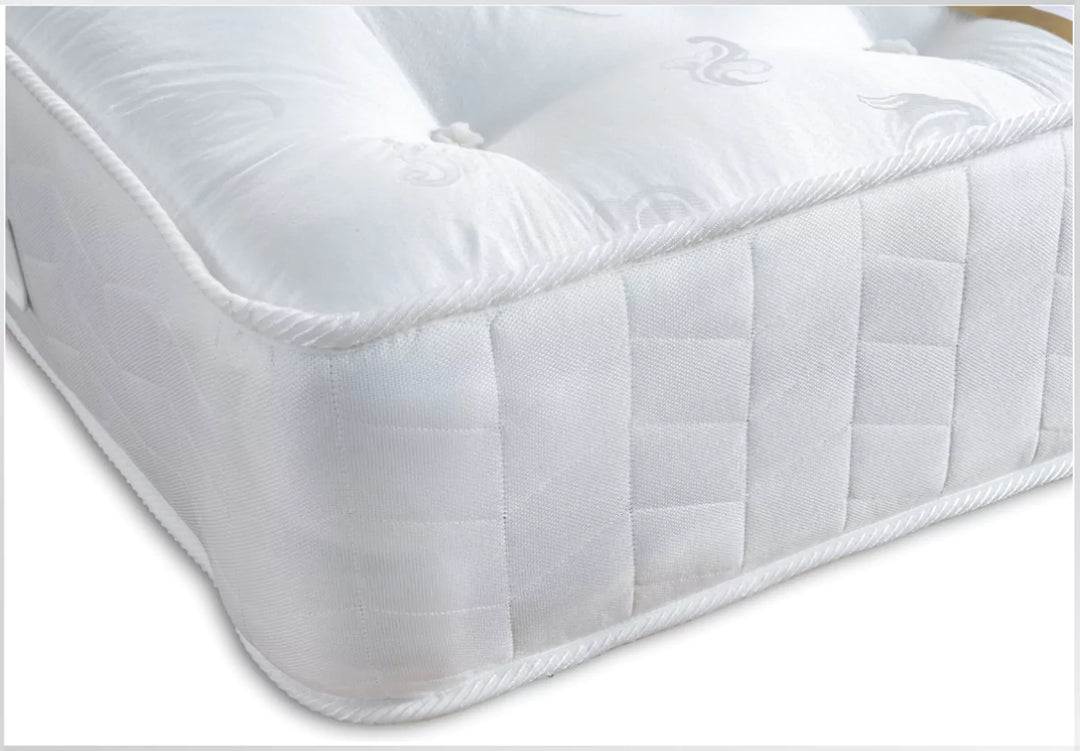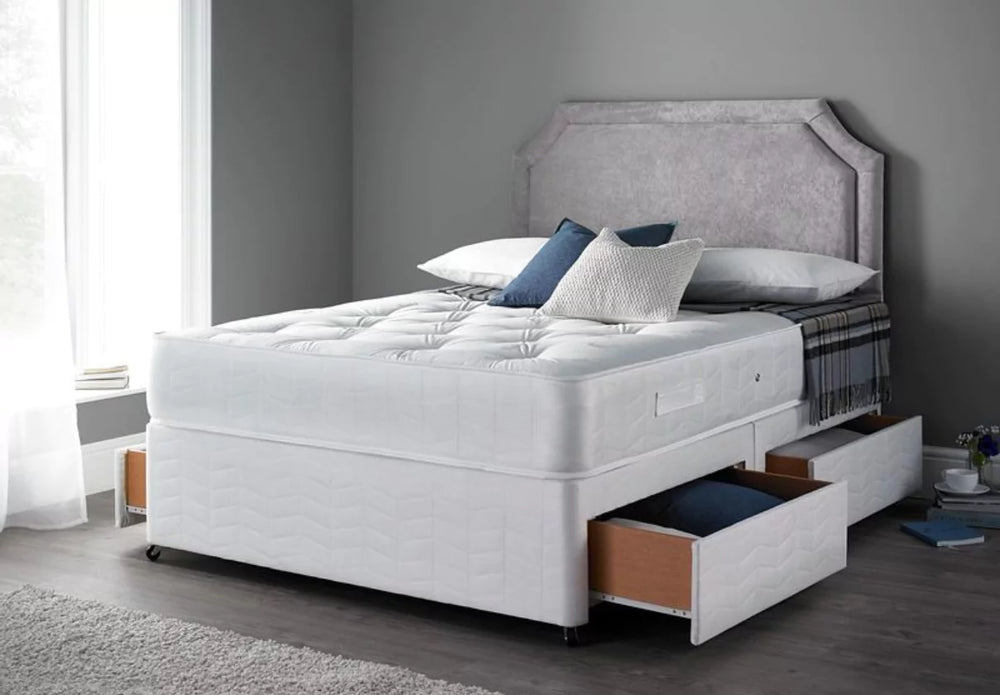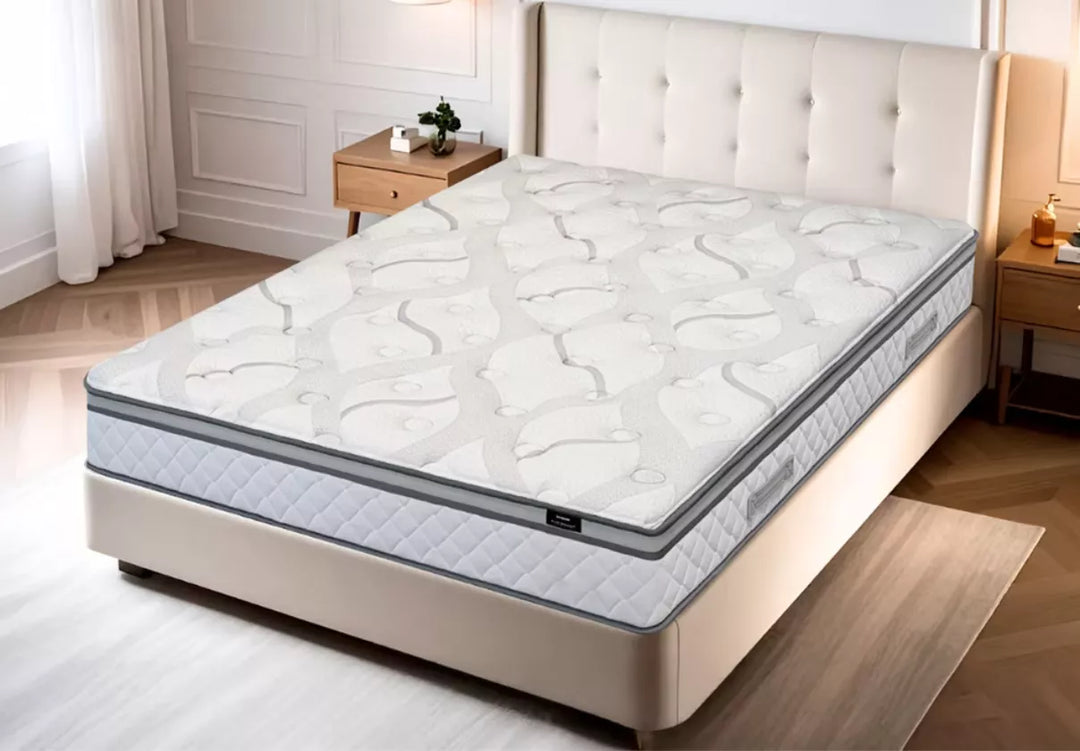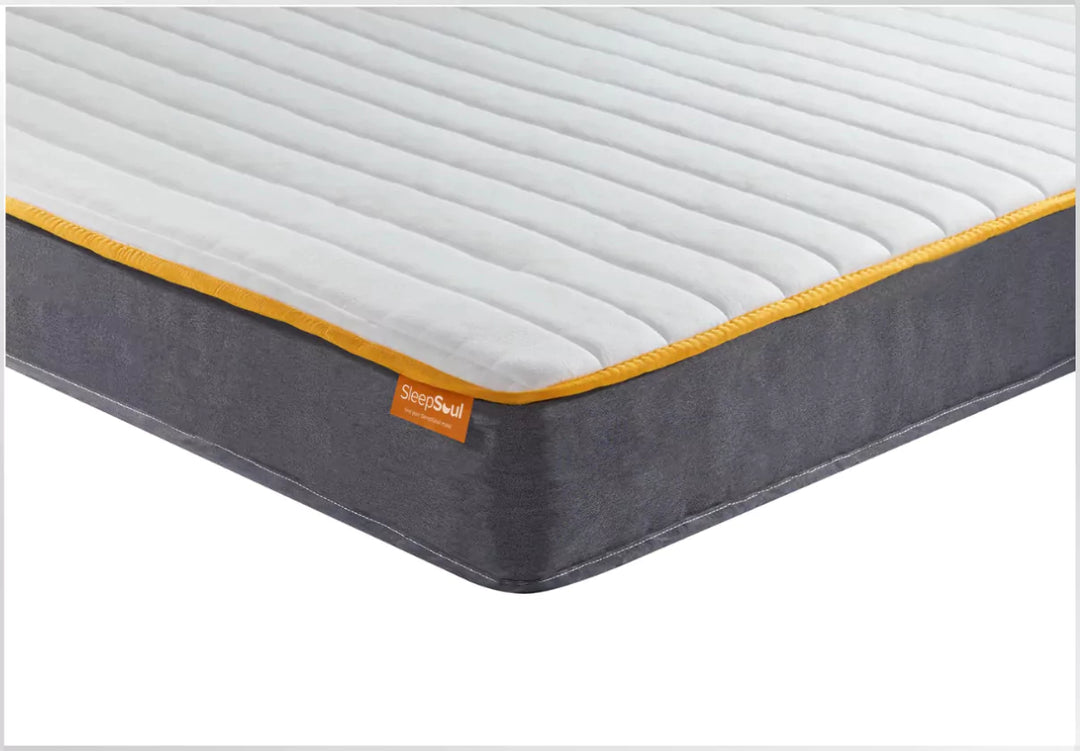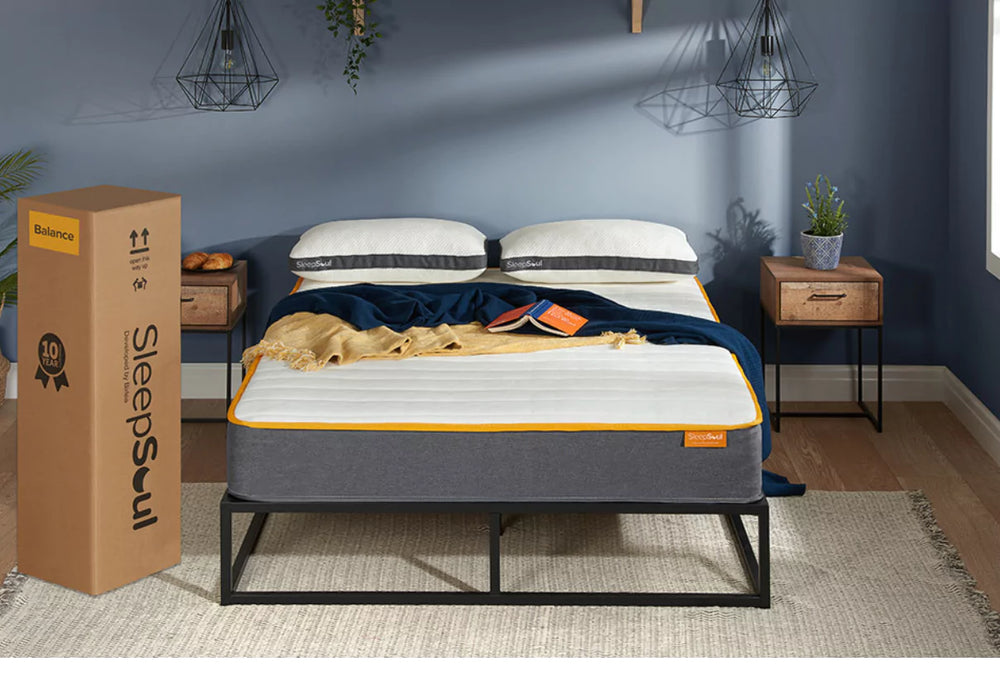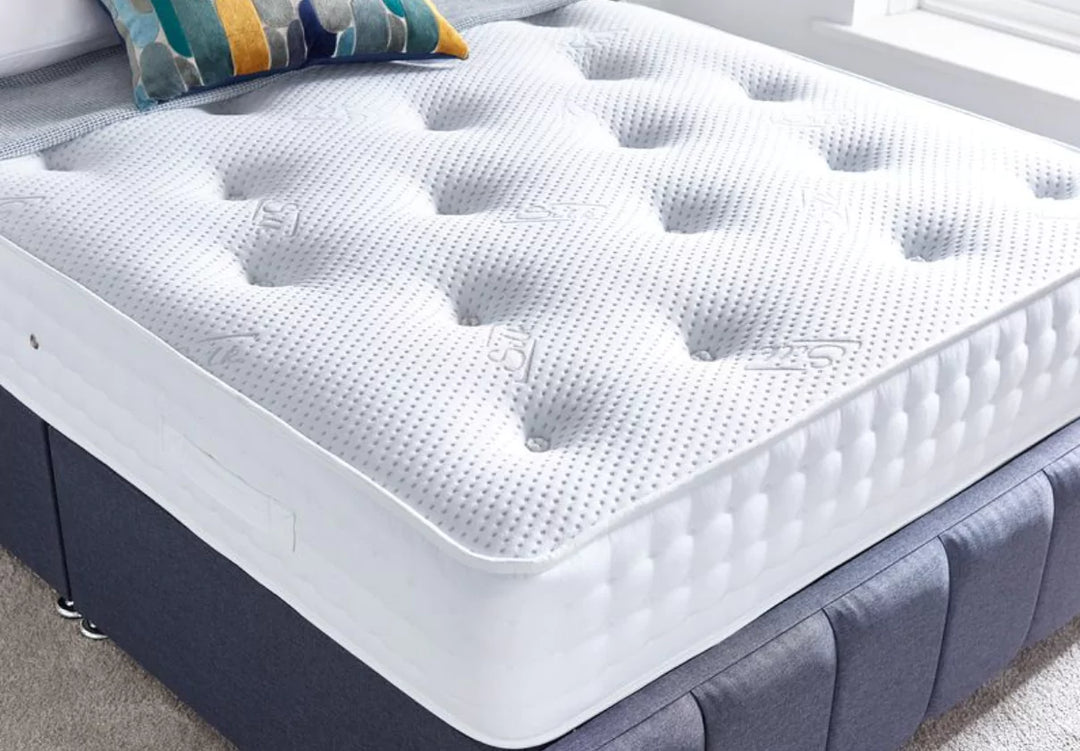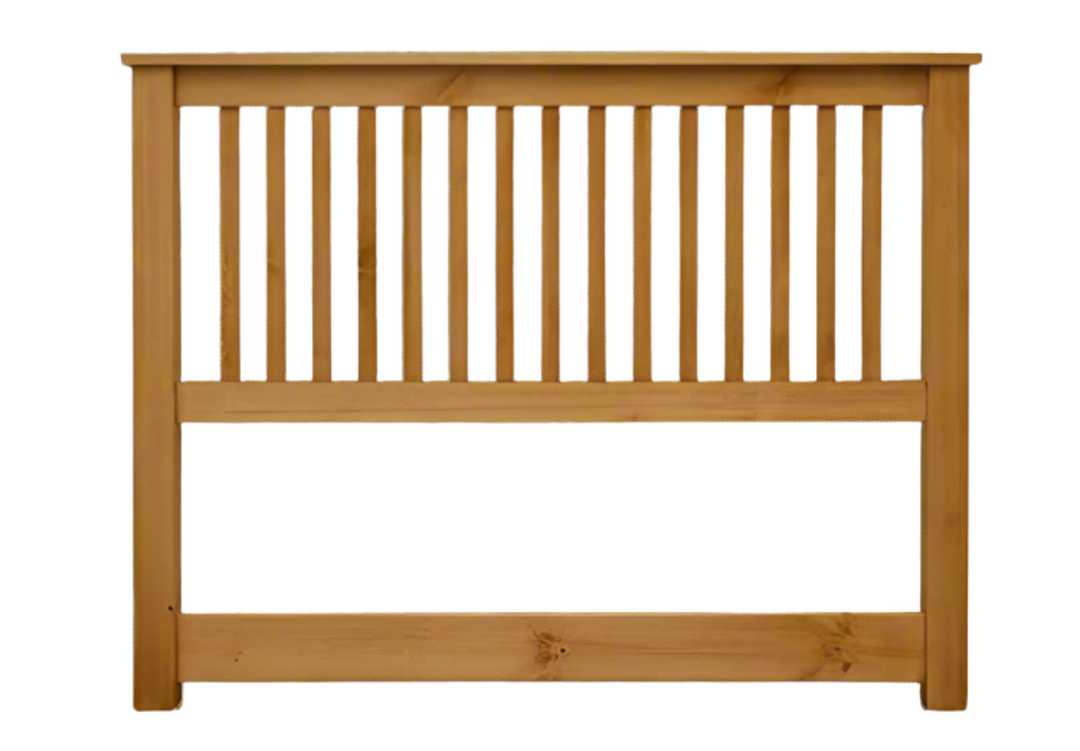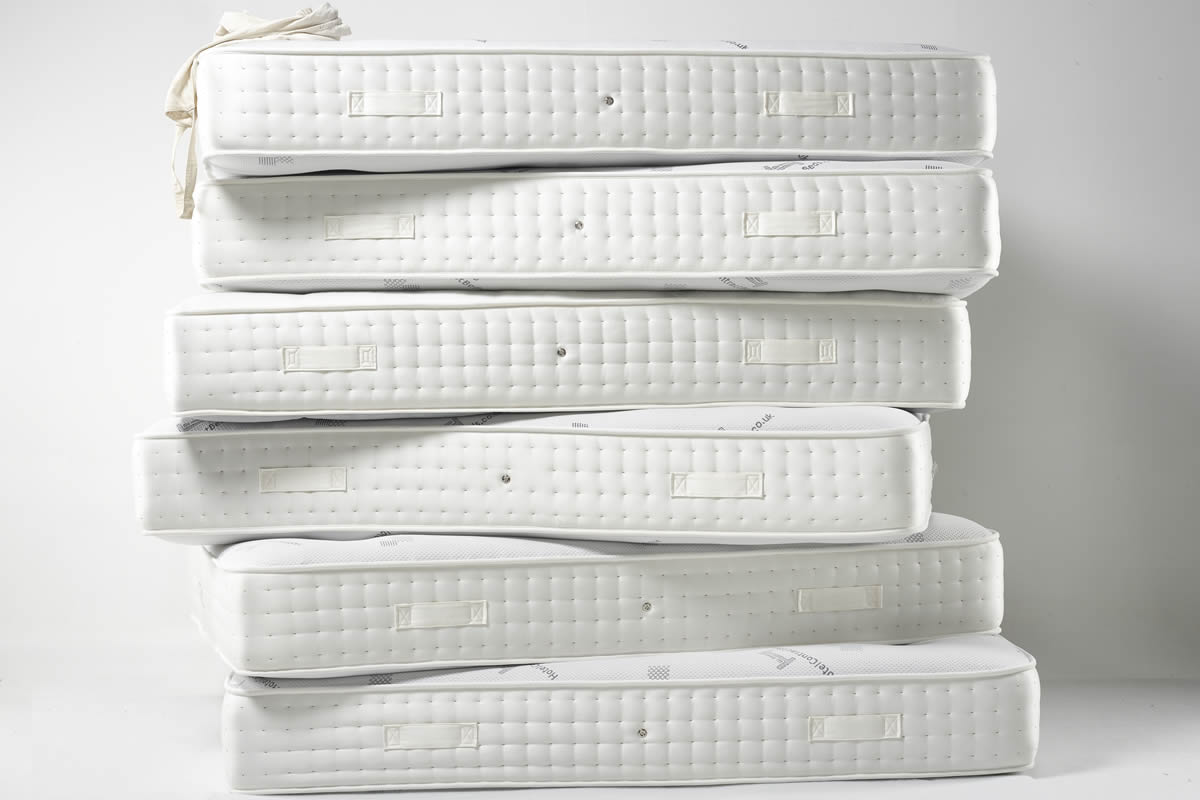
Medium Mattress Buying Guide
Perfect balance of support & comfort for better sleep
What is a Medium Mattress?
Medium tension mattresses are the most popular choice, and it's easy to see why—many couples often find it hard to decide between medium-soft or medium-firm options. Ideal for a wide range of body types and sizes, medium tension spring or foam mattresses come with various filling materials, offering a diverse range of support levels and comfort for different sleep preferences.
Are all Medium Mattresses the Same?
Don’t be fooled into thinking that all medium mattresses are the same! Although they may well provide the necessary body posture, altering the type of filling, density or even the order in which the fillings are placed on top of the springs (or mattress base layer in the case of ‘all foam’ mattresses) can make a real difference to the comfort as you sleep.
Who Should Buy a Medium Mattress?
Of course, there are no hard and fast rules about which type of mattress will be correct for any particular person, as we all have individual preferences. A medium mattress is a good choice for those who prefer a bed with slightly more support and cushioning than a firm mattress. It is also best suited for those who sleep in multiple positions and need some space to adjust their sleeping positions, without feeling any pressure points.
For that extra support, why not try Silentnight's Elite Castiel Memory 800 Mattress, or for the ultimate in luxury, Hypnos' Wool Origins 10 Mattress is definitely the one for you.
What is the Difference Between Medium and Medium-Firm Mattresses?
A medium mattress is typically considered to have a firmness rating of 5-6 out of 10 on the firmness scale. This level of firmness provides a balance of softness and support, making it ideal for sleepers who prefer a moderate amount of cushioning, but still require some level of support.
A medium firm mattress, on the other hand, typically has a firmness rating of 6-7 out of 10. This level of firmness offers more support and less cushioning, making it a good choice for sleepers who need more support for their back or who prefer a firmer sleeping surface.
The choice between a medium and medium-firm mattress will depend on personal preference and sleep needs. It's important to consider factors such as body weight, sleeping position, and any existing pain or discomfort when choosing a mattress firmness level.
Will a Medium Mattress Soften Over Time?
It is possible for a medium mattress to soften over time, especially if it is made from materials such as memory foam or latex, which can experience some degree of compression over time.
However, the degree to which a mattress softens over time will depend on a variety of factors, such as the quality and durability of the materials used, the weight of the sleeper, and the amount of use the mattress receives.
If a medium mattress does soften over time and it no longer provides the level of support needed for a good night's sleep, it may be time to consider replacing it. It's generally recommended to replace a mattress every 7-10 years, or sooner if it starts to show signs of wear and tear, such as sagging, lumps, or tears in the fabric.
Are Medium Mattresses Good for Side Sleepers?
Yes, medium mattresses are often a great option for side sleepers. The balance of softness and support helps relieve pressure points, especially in the shoulders and hips. A medium mattress allows side sleepers to sink into the mattress just enough to align their spine, providing comfort while avoiding unnecessary strain.
Can a Medium Mattress Help with Back Pain?
Many people with back pain find that medium mattresses strike the right balance of support and comfort. The cushioning provided by a medium mattress helps to relieve pressure on the back, while the support ensures that the spine stays aligned during sleep. However, individual preferences may vary, so it’s always a good idea to test a mattress before committing.
How Long Does a Medium Mattress Last?
The lifespan of a medium mattress largely depends on the materials used and how well it is maintained. On average, a medium mattress can last 7-10 years with proper care. Factors such as weight, usage, and the quality of materials can influence the longevity of the mattress. Regularly rotating the mattress can help extend its lifespan and maintain its support over time.
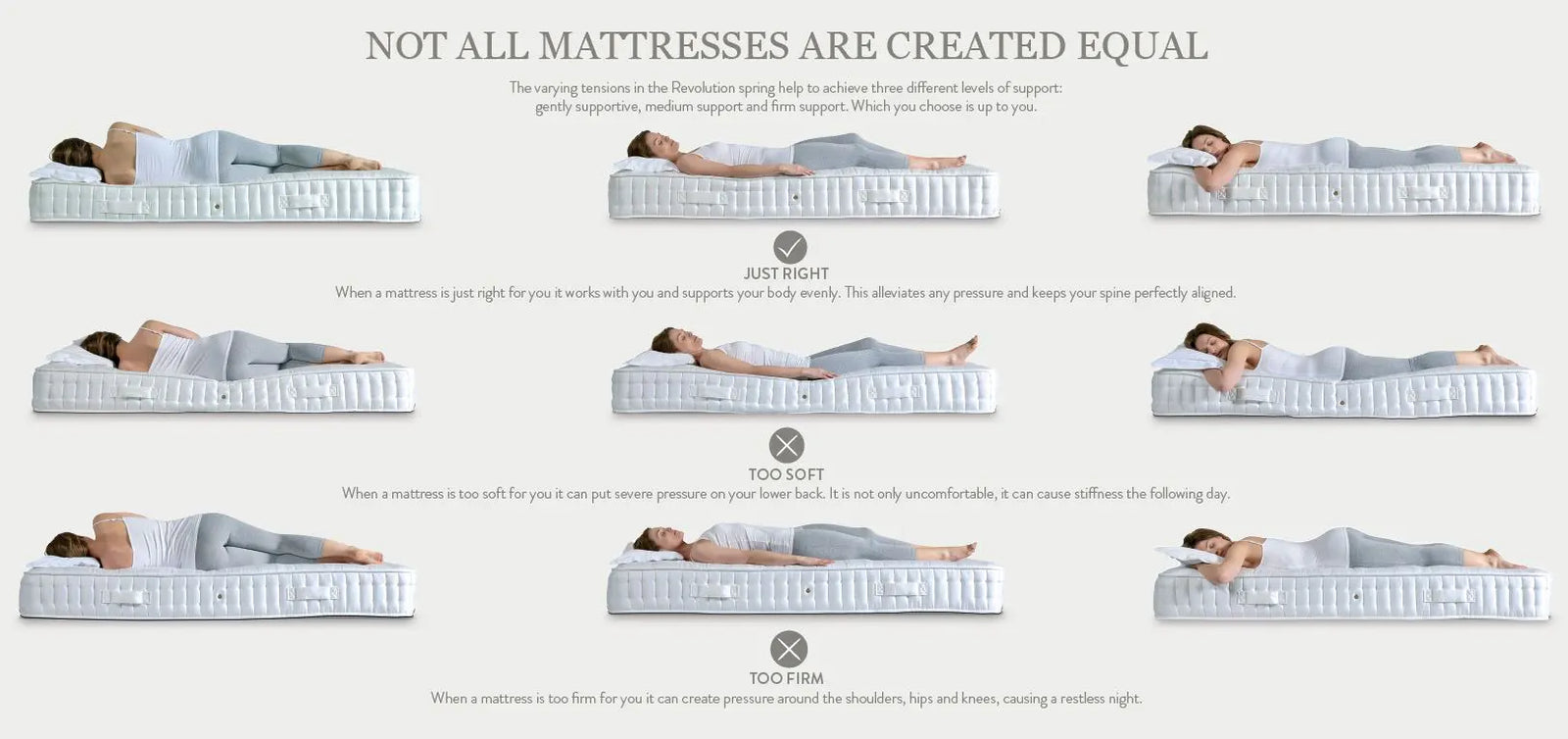
What is the ideal body weight for a medium tension mattress?
Medium tension mattresses are designed to suit a wide range of body weights, making them a versatile choice for most sleepers. Typically, individuals who weigh between 120-250 lbs will find medium mattresses provide the right amount of support and comfort. However, heavier individuals may want to consider a medium-firm mattress for added support.
Are medium tension mattresses suitable for stomach sleepers?
While medium tension mattresses can be a good option for most sleeping positions, stomach sleepers may require slightly firmer support to avoid misalignment of the spine. However, if you prefer the cushioning of a medium mattress, it is important to ensure that the mattress provides enough firmness to support your lower back and hips.
How does a medium tension mattress affect sleep posture?
A medium tension mattress promotes good sleep posture by supporting the natural alignment of your spine. Its balanced firmness helps distribute body weight evenly, relieving pressure points and reducing the risk of aches and pains. The combination of comfort and support makes it a great option for maintaining proper posture throughout the night.
Can a medium mattress be used with an adjustable bed frame?
Yes, medium tension mattresses can be used with adjustable bed frames. Many medium mattresses, particularly those made with memory foam or hybrid designs, are flexible enough to conform to the adjustments made by the frame. Just be sure to choose a mattress that is compatible with the type of adjustable bed you have to avoid damage.
Do medium mattresses work well for combination sleepers?
Yes, medium tension mattresses are a great choice for combination sleepers who change positions throughout the night. The balanced support offered by a medium mattress provides comfort whether you're sleeping on your back, side, or stomach. It allows enough sinkage for side sleepers while still offering support for back and stomach sleepers.
Can a medium mattress help with sleep apnea?
A medium mattress may provide benefits for those with sleep apnea, especially if it promotes proper spinal alignment and supports the head and neck area. For individuals with sleep apnea, it’s important to choose a mattress that prevents any sinking or misalignment, as this can help reduce the likelihood of airway obstructions during sleep.
Is a medium tension mattress better than a soft mattress for joint pain?
For individuals with joint pain, a medium tension mattress can provide more support than a soft mattress. While soft mattresses offer cushioning, they may not provide enough support for the joints, leading to discomfort. A medium mattress offers a balance of support and comfort that helps reduce pressure on the joints while maintaining proper alignment.
What are the best mattress materials for medium tension support?
Several materials are used to create medium tension mattresses, including memory foam, pocket springs, and latex. Memory foam provides excellent pressure relief, while pocket springs offer responsive support. Latex mattresses are durable and naturally breathable, making them a great choice for those seeking medium tension support with added comfort and cooling properties.
How do I know if a medium mattress is too soft or too firm for me?
If you find that a medium mattress is too soft, you may experience discomfort or misalignment, especially if you have back or neck pain. On the other hand, if the mattress feels too firm, you may wake up with pressure points in areas like your hips or shoulders. The ideal medium mattress should offer a balance of support and cushioning to relieve pressure while keeping your spine aligned.
Can a medium mattress help with snoring?
A medium mattress can help reduce snoring, particularly if it helps align the spine and keeps the airways open. The right amount of support for your head, neck, and back can prevent the airway from collapsing during sleep, reducing the chances of snoring. Memory foam and hybrid mattresses are often recommended for snorers, as they provide superior support and comfort.



